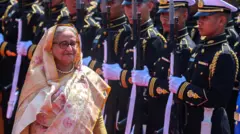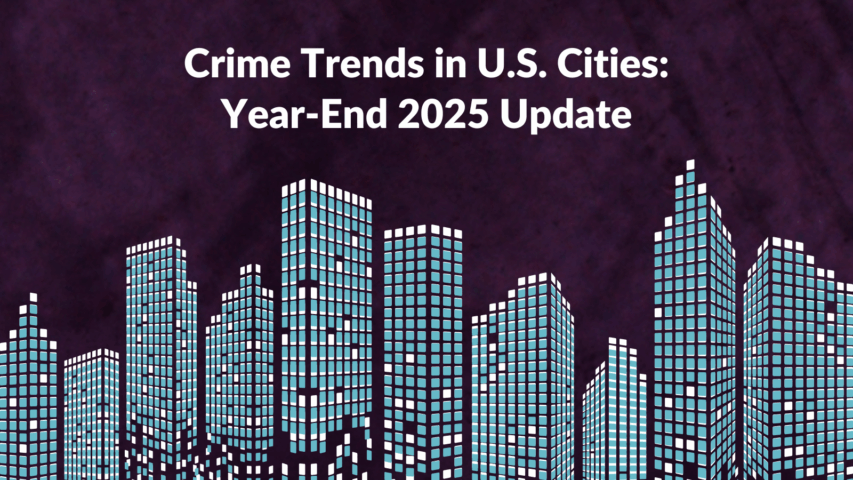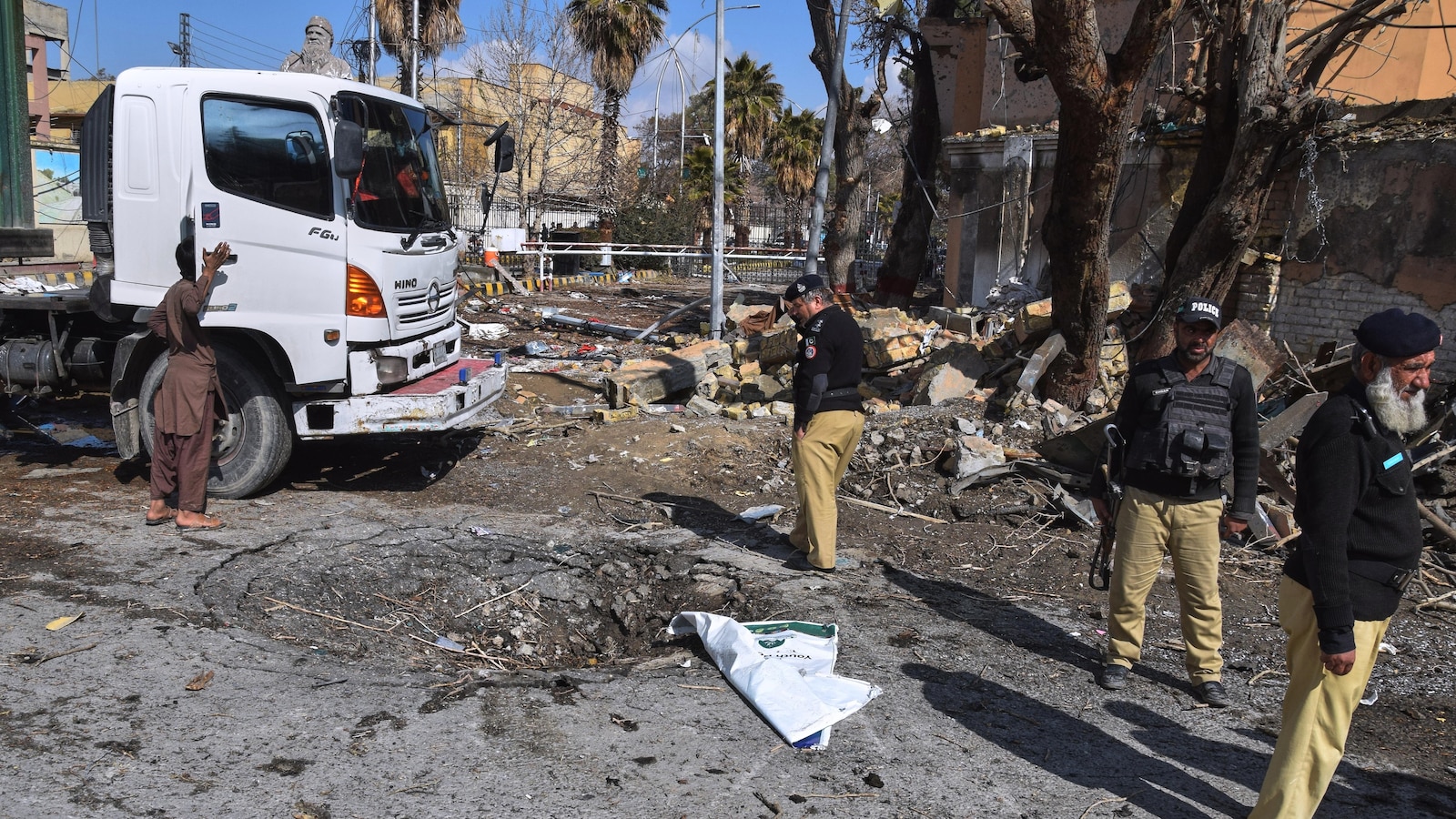Ex-Bangladesh leader Sheikh Hasina sentenced to death over brutal protests crackdown – BBC

Report on Political Developments in Bangladesh and Implications for Sustainable Development Goals
1.0 Executive Summary
This report analyzes the recent conviction of former Prime Minister Sheikh Hasina and its ramifications for the political landscape of Bangladesh. The developments present significant challenges to the nation’s progress towards several Sustainable Development Goals (SDGs), most notably SDG 16, which focuses on peace, justice, and strong institutions. The legal verdict, subsequent restrictions on the Awami League party, and international diplomatic pressures are key factors impacting political stability, the rule of law, and fundamental freedoms.
2.0 Legal Proceedings and the Rule of Law (SDG 16)
The conviction of Sheikh Hasina by the International Criminal Tribunal, a body she established in 2010 to address war crimes, marks a critical juncture for the country’s judicial system. This situation directly pertains to the targets of SDG 16, which advocates for accountable and transparent institutions.
- SDG 16.3 (Access to Justice): The verdict raises questions about the future of political accountability and the consistent application of the rule of law for all citizens.
- SDG 16.6 (Effective, Accountable Institutions): The proceedings test the impartiality and strength of the judicial institutions established to deliver justice for historical crimes.
3.0 Impact on Political Institutions and Fundamental Freedoms
The political fallout from the verdict has placed considerable strain on the Awami League, a major political institution. The restrictions imposed on the party and its leader challenge the principles of inclusive and participatory governance as outlined in the SDGs.
- Restrictions on Political Activity: An executive order has banned the activities of the Awami League, and its top leadership is either in exile or under arrest. This curtails the party’s ability to function, impacting SDG 16.7 (responsive, inclusive, participatory and representative decision-making).
- Constraints on Freedom of Expression: A court-imposed ban on media outlets publishing statements from Sheikh Hasina directly conflicts with SDG 16.10 (ensure public access to information and protect fundamental freedoms).
- Future of Political Participation: The mounting legal and political pressure on the party may force a strategic reassessment, with significant implications for the political inclusion of its supporters and the role of women in leadership, relevant to SDG 5 (Gender Equality).
4.0 International Cooperation and Future Stability (SDG 17)
The government’s efforts to extradite Sheikh Hasina from India introduce a diplomatic dimension that invokes SDG 17 (Partnerships for the Goals). The outcome of this request will depend on bilateral cooperation and could influence regional stability.
- Bilateral Relations: The response from India to an extradition request, particularly from a future elected government, will be a key factor in international cooperation for justice.
- Electoral Integrity: The upcoming national elections are pivotal. The political climate, shaped by these events, will determine the potential for a stable government capable of pursuing the broader 2030 Agenda for Sustainable Development.
Analysis of the Article in Relation to Sustainable Development Goals (SDGs)
1. Which SDGs are addressed or connected to the issues highlighted in the article?
The primary SDG addressed in the article is:
-
SDG 16: Peace, Justice and Strong Institutions
This goal is central to the article, which revolves around themes of justice, political institutions, and the rule of law. The text discusses the conviction of a former prime minister for war crimes, the functioning of a special tribunal, the role of an interim government, upcoming national elections, and restrictions on fundamental freedoms. These elements are all core components of SDG 16, which aims to promote peaceful and inclusive societies, provide access to justice for all, and build effective, accountable, and inclusive institutions at all levels.
2. What specific targets under those SDGs can be identified based on the article’s content?
Based on the article’s content, several specific targets under SDG 16 can be identified:
-
Target 16.3: Promote the rule of law at the national and international levels and ensure equal access to justice for all.
The article directly relates to this target by discussing the legal proceedings against Sheikh Hasina. The conviction for “war crimes” and “crimes against humanity” by the “International Criminal Tribunal” is a clear effort to apply the rule of law to address past atrocities. The extradition request to India also highlights the international dimension of promoting the rule of law.
-
Target 16.6: Develop effective, accountable and transparent institutions at all levels.
The article mentions several key institutions: the court established in 2010 (the International Criminal Tribunal), the “interim government,” and political parties like the “Awami League.” The entire narrative explores the effectiveness and accountability of these institutions in a period of political transition and legal reckoning.
-
Target 16.7: Ensure responsive, inclusive, participatory and representative decision-making at all levels.
This target is addressed through the mention of the “scheduled Bangladesh national elections in February next year.” Elections are a fundamental mechanism for ensuring representative decision-making. The article implies that the outcome of these elections will be crucial for the country’s future and for resolving the political situation involving Sheikh Hasina.
-
Target 16.10: Ensure public access to information and protect fundamental freedoms, in accordance with national legislation and international agreements.
The article explicitly points to challenges related to this target. It states that “a court had imposed a ban on media outlets publishing what it termed her ‘provocative statements'” and “The interim government has also banned the party’s activities by executive order.” These actions represent direct restrictions on the fundamental freedoms of expression, press, and association.
3. Are there any indicators mentioned or implied in the article that can be used to measure progress towards the identified targets?
Yes, the article mentions or implies several indicators that can be used to measure progress:
-
Indicators for Target 16.3 (Rule of Law and Justice):
The article points to the existence of a verdict and conviction for “war crimes” and “crimes against humanity.” A measurable indicator here is the number of individuals tried and convicted for such serious crimes through formal justice mechanisms like the International Criminal Tribunal.
-
Indicators for Target 16.7 (Inclusive and Representative Decision-Making):
The key indicator mentioned is the “scheduled Bangladesh national elections.” The successful and fair holding of these elections would be a primary measure of progress towards this target.
-
Indicators for Target 16.10 (Fundamental Freedoms):
The article provides clear, albeit negative, indicators. The “ban on media outlets” and the “ban on the party’s activities” serve as direct indicators of restrictions on fundamental freedoms. Progress would be measured by the removal of such bans and the number of legal and administrative actions that curtail freedom of the press and association.
4. Create a table with three columns titled ‘SDGs, Targets and Indicators” to present the findings from analyzing the article.
| SDGs | Targets | Indicators |
|---|---|---|
| SDG 16: Peace, Justice and Strong Institutions | 16.3: Promote the rule of law at the national and international levels and ensure equal access to justice for all. |
|
| SDG 16: Peace, Justice and Strong Institutions | 16.6: Develop effective, accountable and transparent institutions at all levels. |
|
| SDG 16: Peace, Justice and Strong Institutions | 16.7: Ensure responsive, inclusive, participatory and representative decision-making at all levels. |
|
| SDG 16: Peace, Justice and Strong Institutions | 16.10: Ensure public access to information and protect fundamental freedoms. |
|
Source: bbc.com
What is Your Reaction?
 Like
0
Like
0
 Dislike
0
Dislike
0
 Love
0
Love
0
 Funny
0
Funny
0
 Angry
0
Angry
0
 Sad
0
Sad
0
 Wow
0
Wow
0














































































